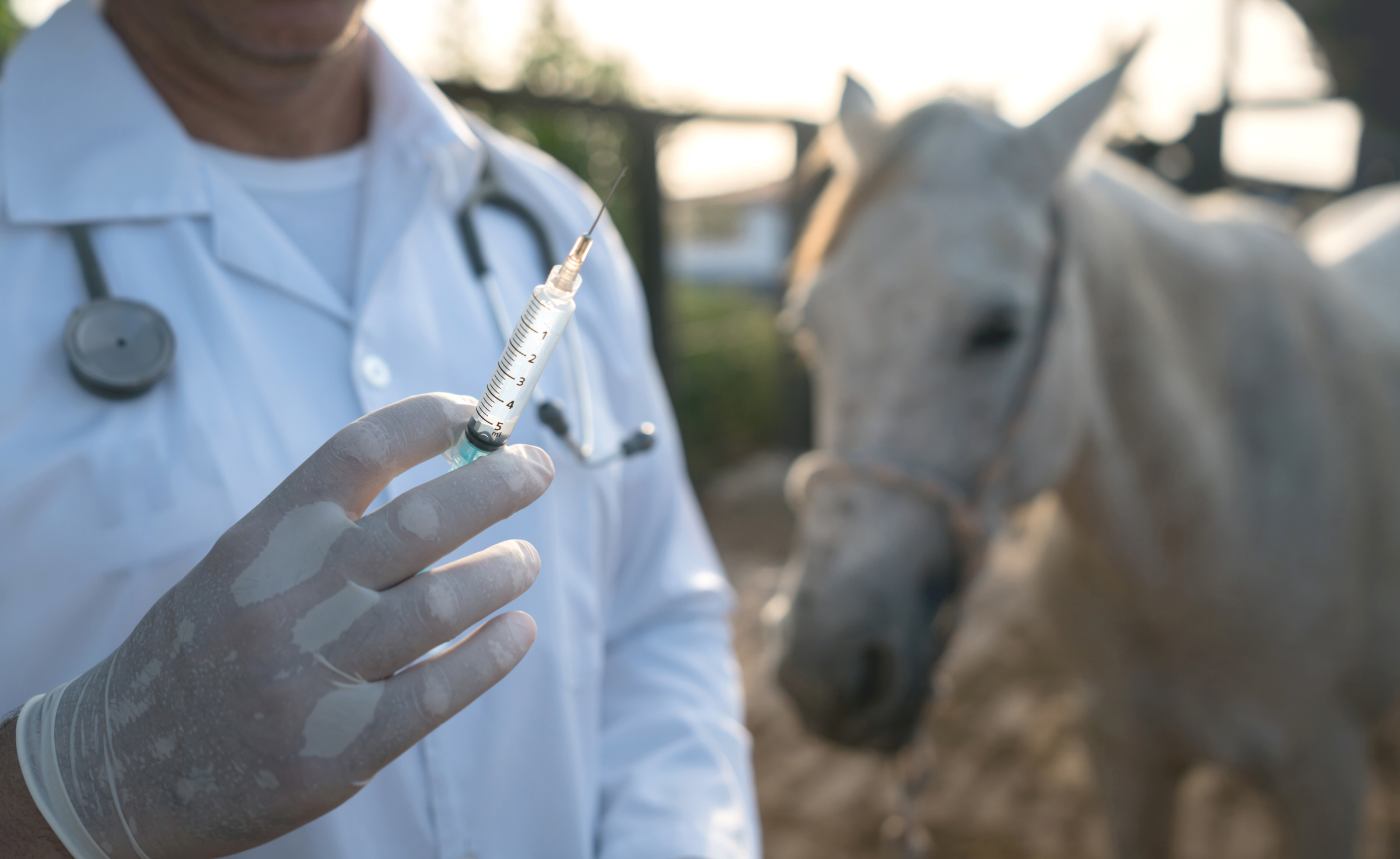
The long life expectation for many horses has a lot to do with the quality of health care provided throughout their lives. One invaluable strategy to disease prevention is the use of vaccines. We are fortunate that so many vaccines are available to combat a large number of infectious viral and bacterial diseases that could otherwise decimate the horse population.
Most equine immunizations are relatively low in price, especially when compared to the cost of treating an infection or losing the horse to a potentially fatal infectious disease. Nonetheless, disease cases are reported in the USA each year that involve horses that have not been vaccinated or those whose vaccination history has lapsed past a year or two.
For example, based on USDA monitoring in 2016, West Nile virus infected 377 horses in 32 states, and 116 horses contracted Eastern equine encephalitis in 14 states. Both of these diseases have high fatality rates, and horses that do recover are often left with varying degrees of neurologic deficits. Both diseases are preventable through proper immunization.
The American Association of Equine Practitioners (AAEP) recommends that all horses annually receive “core” vaccines no matter the geographical area. All horses are at risk of contracting these particular infections. However, other than rabies, none of the other core diseases is communicable between horses or from horses to people. Core vaccines include protection against:
- Eastern and Western equine encephalitis (EEE and WEE, sleeping sickness)
- Tetanus (note that spores are abundant in soil and feces and infection usually occurs during wound contamination)
- West Nile virus (WNV)
- Rabies
Immunization against all of of these diseases has been shown to have high efficacy using available vaccine products. And, there is minimal risk of adverse reactions. For these reasons, there is no reason not to use core vaccines on all horses.
Vaccine manufacturers recommend that core vaccines be given annually in order to confer optimal protection. Immunizations are a primary line of defense against disease, but other control measures can help minimize exposure. For example, reducing mosquito populations is important for control of encephalitis and West Nile virus, which are diseases carried by birds but transmitted by mosquitoes.
Core vaccines are started when a foal is 4-6 months of age. They are given as a “primary” series of two injections spaced 4-6 weeks apart, and a third injection given at 10-12 months of age. Depending on age of the horse and whether the dam was immunized prior to foaling, the third injection can be given eight weeks after the second injection, or sooner if in the midst of mosquito season. Generally, protection is not conferred until a couple of weeks following the second vaccine dose. This should be kept in mind in the face of an outbreak. A booster is given annually, although it might be given twice a year in areas with endemic disease problems. Diseases that fit in this category include West Nile virus and encephalitis in the Southeastern USA due to a lengthy mosquito season.
Most of the core vaccines are manufactured using inactivated or “killed” antigens, meaning the virus in the vaccine is not able to create disease or spread it between horses. The vaccine causes antibody response to “prime” the horse’s immune system to be better able to fight off disease.
For horses that travel to clinics and competitions, it is helpful to carry their vaccine record with them to verify current immunization status.


